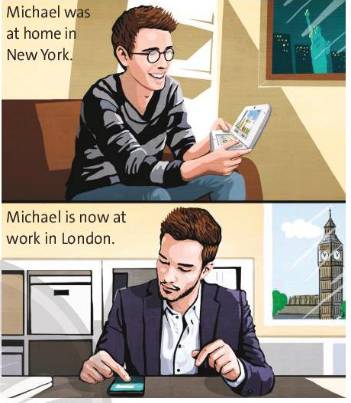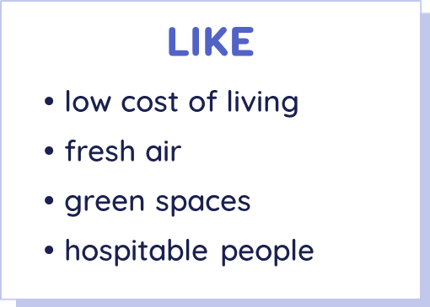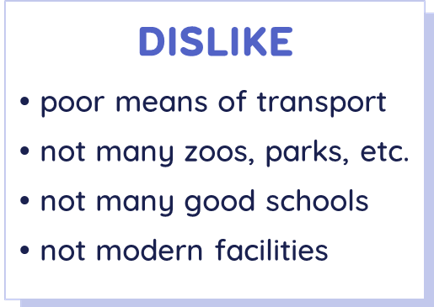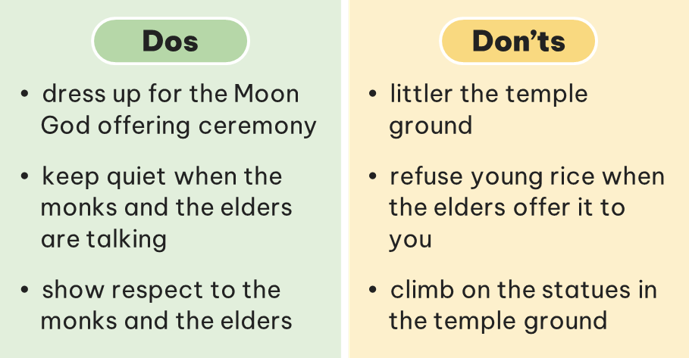Hãy nhập câu hỏi của bạn vào đây, nếu là tài khoản VIP, bạn sẽ được ưu tiên trả lời.

Living in the countryside is very unique. Although many people think that the country is not good or not well-provided, it's still one of the best options for healthy living. In the countryside, first, it's the low cost of living. Secondly, unlike the cities, the country provides fresh air and green spaces. Last but not least, the villagers are always kind and friendly, willing to help each other no matter what.
Some people really prefer to live in the downtown because of its facilities. But I prefer to live in the countryside because of many reasons.
First of all, the life in the city makes me uncomfortable, I cannot bear to live in cramped conditions with the hustles and bustles. We do not have fresh air to breathe, do not have a space for our children to play and for us to relax. It is really tiring and upset to wait for hours because of traffic jams.
Secondly, the pollution because of smogs and dusts and noise can make me feel sick. Moreover, I do not feel safe to live in the city because the criminal situations are rising. , We feel worried when we go out each time.
Thirdly, Nowadays, the conditions of the countryside are better and better, the gap between the cities and the countryside is narrowed day by day.
I love the silence, I love fresh air. I love the good relationships of people. so I love to live in countryside.

Hi Tom,
I hope this email finds you well. I wanted to share an exciting opportunity with you – the upcoming Ok Om Bok Festival! It's a vibrant and culturally rich event that celebrates the traditional harvest season.
Participating in the festival will give you a chance to immerse yourself in the local culture, witness mesmerizing rituals, and enjoy delicious traditional foods. The festival's colorful atmosphere and warm community spirit make it a unique experience.
Don't miss out on this fantastic cultural celebration! Your presence would undoubtedly add to the festive cheer. Looking forward to seeing you there!
Best regards,
Xuan Thanh
Dear Tom,
I'm happy to hear that you are going to join the Ok Om Bok Festival in Soc Trang Province. As I know, Ok Om Bok Festival, also called Moon Offering Festival is traditional folk festival has existed for a very long time of Khmer people in Mekong Delta, especially 2 Tra Vinh and Soc Trang Provinces.
Here, I have some advice for you to dos and don'ts at that festival. First, I think you should wear trainer or shoes and comfortable clothes because maybe you must be walk a lot. And then, remember to bring some bottle of water, it will be hot in Soc Trang so you will get thirsty.
Also, I should remind you that you must not to litter on the ground or run away from your father. It's an big festival so it will be crowded, you should be careful to not get lost. Anyway, I hope you will have a great time with your dad and enjoy the festival.
Cheers
1. fashionable
2. traditionally
3. authenity
4. cultural
5. an affordable
6. equipment
7. collector
8. agree
9. freedom
10. childhood

Questions:
B. Give the correct forrm of the following verbs. (0,5pt)
1. They ..................a nomadic life for six years. (live)
2. Children in this village love ............. kites on summer afternoons. (fly)
C. Write the correct forrm of the adverbs in bracket to complete the sentences (0,5pt)
1. On Sunday morning I often get up (late) ............ than usual.
2. If you want to stay slim, you have to eat (healthily) ......................
Answer:
B. Give the correct forrm of the following verbs. (0,5pt)
1. They ......have lived............a nomadic life for six years. (live)
2. Children in this village love ......flying....... kites on summer afternoons. (fly)
C. Write the correct forrm of the adverbs in bracket to complete the sentences (0,5pt)
1. On Sunday morning I often get up (late) ......later...... than usual.
2. If you want to stay slim, you have to eat (healthily) ......more healthily................
___Học_tốt___
#lyt

1. Came / had finished
2. Has met
3. Went / had read
4. Hasn't worn
5. Had started
6. Done / had gone
7. Has lived / moved
8. Told / has learnt
9. Has worked/retired
10. Had gotten / has already started
11. Came/ had changed
12. Had grown
13. came/ had waited
14. Listen/ Had done
15. went / had gone
Hok tốt!

Exercise 1. Underline the most suitable future form in each sentences.
Why are you going to buy / will you buy a new mountain bike?
Don’t phone between 8.00 and 9.00. I’ll study / I’ll been studying then.
Look out! That tree will / is going to fall.
Let me know as soon as Louis will get / gets here.
Great news! Jean and Chris will come/ are coming to stay with us.
According to this timetable, the bus is going to arrive/ arrives at 6.00.
Can you call me at this evening, because I’ll / I’m leaving tomorrow.
If you arrive late at the sale, the best thing will go / will have gone.
Exercise 2. Put each verb in brackets into a suitable future form.
By the time we reach home, the rain will have stopped (stop).
This time next week I (lie) will be lying on the beach in Spain.
In ten years’ time I (work). will be working for a different company.
If we don’t get there by 6.00, Jack (leave) will leave
In July they (be married). will have been married for 20 years.
In the year 2500 a lot of people (live) will be living on the Moon.
When you get to the station, I (wait) will be waiting for you outside.
Don’t worried! The plane (land) will be landing/ will land/ is going to land in a moment.
By the time you come home, I (finish) will have finished. the decorating.
Come round between 8 and 9. We (watch). will be watching the match on TV then.
Exercise 3. Put each verb in brackets into a suitable future form.
When I (see) see you tomorrow, I (tell) will tell you my news.
As soon as we (get) get there, we (phone) will phone for a taxi.
I (go) will go to the library before I (do) do the shopping.
We (wait) will wait here until the rain (stop) stops
I (get) will get. £50 from the bank when it (open) open
After you (take) take the medicine, you (feel) will feel better.
You have to stay until you (finish) have finished your work.
I (let) will let you know the minute I (hear) hear the results.
Before we (paint) paint the wall, we (have).will have a cup of tea.
We (climb) will climb over the wall as soon as it (get) gets dark.
Exercise 4. Put each verb in brackets into a suitable future form.
Have you ever wondered what exactly (1) you will be doing (you do) in ten years time? Well, according to the computer expert Tom Vincent, computer (2) will be soon able (soon be able) to make accurate predictions about the future. Professor Vincent, from Cambridge,(3) will hold (hold) a press conference next week to describe the computer which he calls “the Computafuture”. “This computer can tell us what life(4) will be (be) , based on data describing last events”, explains Professor Vincent. For example, Computafuture can predict how many people(5) will live (live) in a parular area, or whether there(6) will be (be) a lot of rain during a parular period. Professor Vincent also believes that by the year 2050, computer (7) will have replaced (replace) teachers, and (8) will also be doing (also do) most of the jobs now being done by the police. “Computer are becoming intelligent all the time”, says Professor Vincent. Soon they (9) will be directing .(direct) traffic and(10) teaching (teach) our children. And telling us about the future.”

1. We stayed home because the weather was cold
2. Because most people ..., they begin to jog.
3. People ... country because the climate is healthy.
4. Because a ... purposes, it becomes ...
5. Because she was ill, Stacy...
6. We were ... meeting because the traffic was heavy.
7. Harry ... hospital because his leg was broken.
8. Because our ... meeting, it was cancelled.

1.have visited
2.have never traveled
3.have never seen
4.have never caught
5.has traveled
6.Have you ever wanted
mik không chắc là đúng nhưng bạn có thể check thử nhé

Underline the most suitable verb form in each sentence.
1. I suddenly remembered that I forgot/ had forgotten my keys.
2. While Diana watched/ was watching her favorite television program, there was a power cut.
3. Who drove/ was driving the car at the time of the accident?
4. By the time Tim got back, Mary had gone/ went home.
5. David had eaten/ate Japanese food before, so he knew what to order.
6. I did/ was doing some shopping yesterday when I saw your friend.
7. What exactly were you doing/ did you do when I came to your office yesterday?
8. James missed the party because no one was telling/ had told her about it.
Underline the most suitable verb form in each sentence.
1. I suddenly remembered that I forgot/ had forgotten my keys.
2. While Diana watched/ was watching her favorite television program, there was a power cut.
3. Who drove/ was driving the car at the time of the accident?
4. By the time Tim got back, Mary had gone/ went home.
5. David had eaten/ate Japanese food before, so he knew what to order.
6. I did/ was doing some shopping yesterday when I saw your friend.
7. What exactly were you doing/ did you do when I came to your office yesterday?
8. James missed the party because no one was telling/ had told her about it.




1. He didn’t use to work in an office.
2. He used to have longer hair.
3. He used to live in the USA.
4. He didn’t use to wear smart clothes.
5. He used to wear glasses.
6. He used to like playing games.